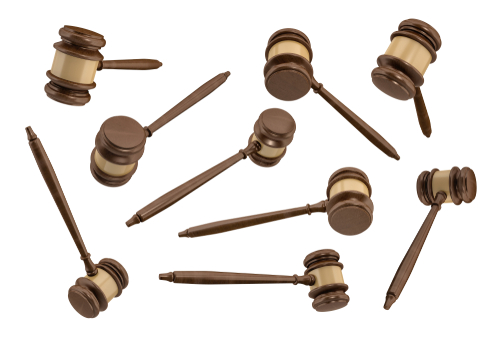Embryo decision citing slavery law is ‘reprehensible and offensive,' law prof says

Image from Shutterstock.
A judge’s decision last month allowing a divorced woman to pursue use of frozen embryos is raising eyebrows because of its reliance on an 1849 law that regarded enslaved people as goods that can be bought and sold.
Judge Richard E. Gardiner of Fairfax County, Virginia, ruled that a divorced woman seeking the embryos could sue on the basis of a law that governs the partitioning and distribution of goods or chattels on real property.
Gardiner said the law is not limited to goods or chattels on land being partitioned, given an 1849 version of the law titled “partition of slaves and other chattels.” Slaves could be sold under the old law even though they were not annexed to the land.
Given the “origins and evolution” of the current law, Gardiner reasoned, it permits goods or chattels to be partitioned as personal property not annexed to land.
The New York Times reported on the decision on Thursday and spoke with University of California at Davis School of Law professor Lisa Ikemoto. She said it is “logically possible” to treat disposition of the frozen embryos as a property distribution, but the judge “doesn’t have to go into the slave law.”
“In a sense,” Ikemoto said, Gardiner “is reviving the use of a law that treated humans as property, in the 21st century. It is reprehensible and offensive.”
Susan Crockin, a lawyer and scholar at Georgetown University’s Kennedy Institute of Ethics, made a similar comment in an interview with the Associated Press. “It’s repulsive and it’s morally repugnant,” Crockin said of the opinion.
Gardiner ruled in a lawsuit by Honeyhline Heidemann against her ex-husband Jason Heidemann, for possession of their two remaining frozen embryos. Before their 2018 divorce, they reached a separation and property settlement agreement that acknowledged the embryos were in cryogenic storage.
“Pending a court order or further written agreement of the parties as to the disposition of the aforesaid embryos, the parties agree that neither of them will remove such embryos from storage,” the agreement said. The agreement also specified that the parties would be equally responsible for the cost of storage.
Honeyhline Heidemann filed a motion in April 2019 seeking to reopen the divorce to determine disposition of the embryos. The motion was dismissed because the court no longer had jurisdiction. Honeyhline Heidemann responded in November 2021 with the lawsuit seeking partition of personal property.
Gardiner didn’t reach a second issue in the case: whether Jason Heidemann had a 14th Amendment right to procreational autonomy that barred his ex-wife’s use of the embryos. Gardiner said that argument was premature and did not need to be addressed at this time.



